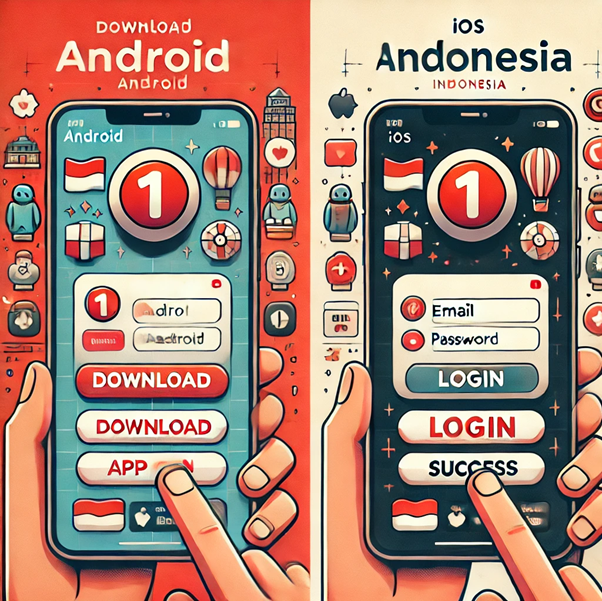In recent years, the gambling industry has undergone dramatic transformations due to the introduction of new technologies. From online casinos and mobile applications to virtual reality experiences, gambling establishments have adopted these innovations for greater convenience, and variety for customers.
One of the major developments in gambling has been the shift toward online gaming. Nowadays, Indian bettors can play the lottery online from anywhere in India using their phones, tablets, and computers – making gambling more accessible than ever before. This convenience has been a major driving force behind growth within this sector of the industry.
Here are a few technologies that are affecting the gambling industry.
Mobile apps
Mobile apps have become an essential factor in the growth of online gambling. Thanks to advances in mobile technology, companies that provide these services have created apps that let players access their favourite games on the go. In addition, these applications offer a smooth user experience with user-friendly interfaces and secure payment methods.
Artificial intelligence
Artificial intelligence (AI) has also been employed to enhance the gambling experience. For example, AI algorithms can be utilized to analyse player behaviour and forecast which games and offers are most likely to appeal to individual gamers, enabling gambling companies to offer personalized experiences tailored to each player’s preferences.
Blockchain
Blockchain technology has also been adopted by the gambling industry, offering players a more secure and transparent gambling experience. Blockchain-based gambling platforms use smart contracts to automate the betting process, eliminating the need for intermediaries. This makes transactions more secure and faster, as well as reduces the risk of fraud.
Blockchain technology has seen significant growth over the past few years. It is a decentralized ledger that allows transparent and secure recording of data and transactions.
The growth of blockchain technology can be attributed to its increasing adoption in various industries, including finance, healthcare, supply chain management, and government. Blockchain technology provides security, transparency, and efficiency, which is critical for these industries.
Moreover, the increasing interest of governments and large organizations in blockchain technology has led to the development of various blockchain-based projects and platforms. This has further fuelled the growth of the blockchain market.
In addition, the integration of blockchain technology with other technologies, such as artificial intelligence (AI) and the Internet of Things (IoT), is expected to create new opportunities and drive the growth of the blockchain market.
AR and VR
Virtual and augmented reality technologies have made significant advances in the gambling industry. Virtual reality (VR) casinos allow players to immerse themselves in an authentic casino setting, complete with slot machines, table games, and even live dealers. These experiences offer players a level of immersion and interactivity not possible through traditional online gambling.
Augmented reality (AR) technology has also been employed to enhance the gambling experience. For instance, AR allows for overlaying virtual objects onto real-world scenes, creating a hybrid experience that blurs the line between reality and virtuality. This technology has also been employed in sports betting, enabling players to wager on live events with real-time statistics and odds overlayed onto their gameplay.
Augmented Reality (AR) and Virtual Reality (VR) are two of the fastest-growing technologies worldwide, experiencing an exponential rise in demand, adoption, and growth over the past several years.
The growth of the AR and VR market can be attributed to numerous factors, including advances in technology, an increasing demand for AR/VR in gaming and entertainment, as well as growing applications of AR/VR in healthcare, education, and training programs.
Moreover, the COVID-19 pandemic has further spurred AR and VR adoption across various industries, such as e-commerce, retail, and remote work. With increasingly affordable AR/VR devices becoming widely accessible, the market size for these technologies is expected to experience tremendous growth over the coming years.
Overall, the AR and VR market is expected to keep expanding as technology continues to advance and find new applications across various industries.
Conclusion
Finally, the gambling industry has undergone significant transformations in recent years due to the adoption of advanced technologies like online gaming, mobile apps, artificial intelligence, blockchain technology, augmented reality, and virtual reality. These innovations have made gambling more accessible, and convenient for customers while also increasing security, transparency, and efficiency within gambling establishments. The growth of these technologies in the gambling industry can be attributed to their increasing adoption across other sectors such as finance, healthcare, and education. With advances in technology and increasing accessibility of AR and VR devices, analysts predict that the AR/VR market will continue to expand, providing new experiences to consumers across a range of industries.
Photo by Glenn Carstens-Peters on Unsplash




